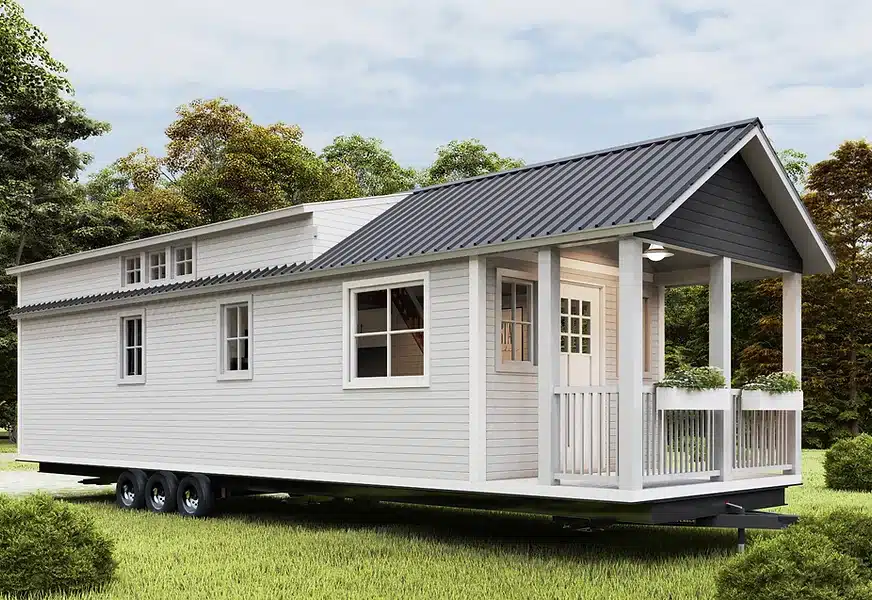Table of Contents
- Introduction
- Finding Land for Your Tiny House
- Buy Land
- Accessory Dwelling Units
- Renting Land From Friends and Family
- Zoning and Building Codes
- Looking For Specific Information On Sites Like Zillow Or Trulia
Introduction
This article provides advice on how to find land for a tiny house. The purpose of the article is to provide readers with an understanding of the different options available and the restrictions they may encounter as they search for land. This article will cover topics such as buying land, looking for accessory dwelling units, renting from friends and family, or finding existing lots with one home already built. It will also explain the restrictions of building codes and Homeowner’s Associations (HOA’s), as well as city-by-city zoning requirements. Additionally, it suggests using Facebook and Reddit to get involved in the community, and emphasizes the importance of compliance when trying to find land for a tiny house.
Finding Land for Your Tiny House
Finding the perfect plot of land for your tiny house can seem like a daunting task. It’s important to understand the restrictions and regulations that come with building a tiny home, as well as researching different options for finding land. This section will outline four ways to find land for your tiny house, including buying, looking for accessory dwelling units (ADUs), renting from friends and family, or finding existing lots with one home already built.
Buy Land
The most straightforward way to find land for a tiny house is to buy it outright. This option is ideal if you have the funds available and are looking for a long-term solution. However, it’s important to research zoning and building codes in the area before making any purchases. Zoning laws vary from city-to-city, so be sure to check out local regulations before committing to buying land. Additionally, many areas require permits or inspections before construction can begin, which may add additional costs to the project.
Accessory Dwelling Units
Accessory Dwelling Units (ADUs) are an increasingly popular option for those looking for smaller homes and more affordable living spaces. ADUs are typically located on an existing lot with one home already built, so they don’t require any additional permits or inspections from the city or county. They are also often less expensive than buying an entire lot of land outright, making them a great option if you’re on a budget.
Renting Land From Friends and Family
If you have family or friends who own property in an area where tiny houses are allowed, renting land may be an attractive option for you. This type of arrangement typically involves signing a lease agreement between both parties that outlines expectations and responsibilities of each side. Be sure to discuss all potential issues such as utilities, access rights and liability insurance before signing any agreements in order to avoid future problems down the line.
Zoning and Building Codes
Before setting out to find land for your tiny house, it’s important to understand what restrictions may be in place in your area regarding zoning and building codes. Each city has different regulations in place regarding the size of dwellings that can be built on certain plots of land and what types of materials must be used during construction. Additionally, many homeowners associations (HOAs) have their own rules about what types of homes can be constructed within their boundaries that must be followed as well.
Looking For Specific Information On Sites Like Zillow Or Trulia
Once you have done some initial research into zoning requirements and building codes in your area, it’s time to start looking at specific properties available in your area using sites like Zillow or Trulia. These sites allow you to narrow down listings based on square footage, location and other criteria that may help you find exactly what you’re looking for when searching for land for your tiny house project.
Main Idea: Finding land for a tiny house can involve buying, renting from friends/family, ADUs, and researching local zoning/building codes.
Avoiding Code Enforcement
Finding land for a tiny house can be a difficult and intimidating process, but it is important to remember that there are many options available. One of the most important considerations when it comes to finding land for a tiny house is code enforcement. Building codes and zoning requirements vary from city to city, and it is important to understand the local regulations before committing to any purchase or rental agreement.
Building Codes and Zoning Requirements for ADUs
In some cities, accessory dwelling units (ADUs) are allowed as an alternative to building a separate home on the property. Before investing in an ADU, it is important to research local building codes and zoning requirements in order to ensure compliance with all applicable laws. In addition, some cities may require additional permits for constructing an ADU, so it is important to check with your local government before beginning construction.
Facebook or Reddit for Community Involvement
Another great way to find land for a tiny house is by getting involved in the community. Sites like Facebook and Reddit can be great resources for connecting with other tiny house enthusiasts who may have insight into available properties or helpful tips about navigating local zoning laws or building codes. These sites can also provide support and guidance from people who have gone through the process of finding land for their own tiny houses.
Compliance for Increased Chances of Acceptance
When looking for land, it is important to remember that compliance with local laws and regulations will greatly increase your chances of being accepted as a tenant or homeowner in the area you are seeking out. It is critical to research local ordinances before committing to any purchase or rental agreement in order to ensure that you are able to comply with all applicable laws and regulations.
Hydration Rights with Purchase
It is also important to consider water rights when purchasing land for a tiny house. Depending on where you live, you may need access to water either through public utilities or through private wells or ponds on the property itself. Researching these options ahead of time will help ensure that your tiny house has adequate access to water sources once you move in.
|
Consideration
|
Description
|
|
Building Codes and Zoning Requirements
|
Research local building codes and zoning requirements to ensure compliance with all applicable laws.
|
|
Community Involvement
|
Connect with other tiny house enthusiasts on social media sites like Facebook and Reddit.
|
|
Compliance
|
Increase chances of acceptance by researching, understanding, and complying with local laws and regulations.
|
|
Hydration Rights
|
Research water rights options to ensure adequate access to water sources once you move in.
|
Conclusion
Finding land for a tiny house can be a complicated process, and it’s important to be aware of the restrictions and regulations that come with living in one. It’s possible to buy land or look for an accessory dwelling unit, rent from friends and family, or find existing lots with one home already built. When looking for specific information on sites like Zillow or Trulia, it’s important to check zoning requirements, building codes, and HOA regulations. Additionally, Facebook and Reddit are great resources for getting involved in the community and understanding local laws. Compliance is key when trying to find land for a tiny house.
Overall, this article has provided advice on how to find land for a tiny house. It suggested buying, looking for accessory dwelling units, renting from friends and family, or finding existing lots with one home already built. It also explained the restrictions of building codes and HOA’s as well as city-by-city zoning requirements. The article also suggested using Facebook and Reddit to get involved in the community, and emphasized the importance of compliance when trying to find land for a tiny house. With this knowledge in hand, you should now have all the tools necessary to make an informed decision about where you want your tiny house to be located.


